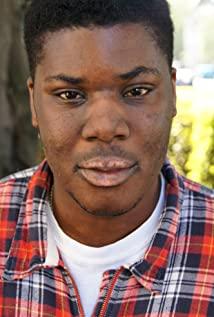Subverting the Three Views is the only criterion for testing the drama, "Black Mirror" almost never disappoints at this point.
Why add "almost"? Because from the third season, "Black Mirror" was sold to Netflix by Channel 4, and British dramas became American dramas.
For drama fans, the advantage of this change is that three episodes per season have become six episodes, and the resources are released at one time, which can be enjoyable to watch; the downside is that the quality has shrunk a lot compared with the previous two seasons, especially the new fourth season. , Memory implantation, future socialization, lynching justice, many stalks have appeared in the previous work, it is inevitable that there will be suspicion of "fried rice".
The fourth season of "Black Mirror" is also an independent story for each episode, telling the various impacts of future technological advances on human life, and these impacts are usually negative, which makes people chill after watching.
Among the ratings on IMDb, "Starship Calliste", "Hanged DJ", and "Black Museum" have higher ratings, and the other three episodes have lower ratings, which are basically similar to the rankings in the heart of the sea.
In particular, the fourth episode of "Hanged DJ" was uncharacteristically, not as bad end as other stories in the "Black Mirror" series, but received the highest evaluation. But is "Hanged DJ" really a happy end? Dahai will talk about his views next.
Before that, let’s comment on the other episodes. Among them, "The Starship Calliste" and "Black Museum" are the opening and finale of the season respectively, and the production investment is obviously inclined.
"The Starship Callister" is about a genius programmer who was mocked and ignored by his colleagues in reality, so he secretly collected the DNA left by his colleagues, and then used black technology to rebuild these colleagues in a Star Wars game And tortured them repeatedly.
"The Black Museum" is about a traveler visiting a museum exhibiting various crimes of murder. The narrator tells the story behind three of the collections.
It is worth mentioning that many of the collections displayed in the museum are props that have appeared in other episodes of "Black Mirror", which can be regarded as hidden little eggs. For example, the instrument for extracting DNA in "The Starship Callister" appeared in the museum.
"Black Museum" is composed of three stories, which formally replicate "Black Mirror: Christmas Special". The main line is that the museum makes money by repeatedly torturing a copy of a executed prisoner, which is exactly the same as the second season of "White Bear".
Both "Starship Calliste" and "Black Museum" talk about the use of black technology to replicate human thoughts and produce artificial intelligence that can think like real people, and then raises a question: whether these artificial intelligences enjoy the same as humans Legal rights?
In essence, this issue is the same as whether human cloning and robots have legal rights, and "Black Mirror" also makes a hypothesis for the future: it is illegal to transfer human consciousness to a restricted form, and at least five emotions can be expressed. humane. (Dahai thinks that one point should be added: all operations must be reversible)
The second episode of "Archangel" and the third episode of "Crocodile" are stories about privacy, but the disadvantage of these two episodes is that they have a low sense of technology, and this topic is also a cliché for the audience and lacks new ideas.
"Archangel" is directed by Judy Foster. It tells a single mother who is overprotective and has implanted a smart software into her daughter, which can monitor her daughter's every move at any time and even block any negative information.
Similar things are also very common in current life. For various reasons, cameras have become standard equipment in schools and kindergartens, and products such as children's watches and green Internet software have also become parents' first choices.
However, compared with these products , many of the black technologies in "Black Mirror" that are still in the experimental stage are irreversible, which usually means tragedies. When children enter the rebellious period and adulthood, they will obviously no longer allow their parents to spy on and interfere with their privacy, and family conflicts are therefore on the verge of breaking out.
The name of the third episode of "Crocodile" is derived from the economic "law of crocodile", which means that when a crocodile bites your foot, if you try to break free with your hand, the crocodile will bite your foot and hand at the same time. The solution is to sacrifice one foot and stop the loss in time.
The story of "The Crocodile" is that the heroine covered up a car accident many years ago. In order to avoid the East Window incident, she killed the accomplice, and the new crime brought new flaws. In order to cover up the flaw, she had to kill again.
When investigating the case, the police and insurance companies used a new technology that can read the memories of the parties and witnesses and recreate the scene of the crime. This technology will undoubtedly greatly increase the crime detection rate, but does the act of reading memory infringe the privacy of others? Anyway, Dahai doesn't want others to disturb my mind.
The fifth episode "Metal Head" is an attempt to transform the "Black Mirror" series. The entire episode uses black and white pictures, and the style is similar to the horror film of Doomsday Escape. However, "Black Mirror" has the iconic sense of technology, topicality and plot. The reversal was gone, so it became the worst episode of word-of-mouth.
In contrast, the fourth episode of "Hanged DJ" not only continued the series' consistent sense of technology and topicality, but also thought about the ending of the story.
"Hanged DJ" is about a blind date system that people will develop in the future. This system allows men and women to continuously match different heterosexual relationships, and then analyze the data to find the most suitable partner.
This setting sounds pretty reliable at first, but it is inevitable that you will encounter a type you don't like when you are on a blind date. In order to obtain data, users need to endure various problems with the matched object, such as snoring, eating garlic, and sexual quirks... it is like a life in this situation.
And with repeated and boring blind dates, strange men and women gradually lose their innocence and become veteran drivers. Blind dates (love) have been reduced to repeated appointments, and the feeling of enthusiasm is becoming less and less, and the chance of success is also More and more faint.
The heroes and heroines in the play meet each other when they match for the first time, and they feel tempted. However, the system then separated the two people and continued to match other opposite sexes. In the process, the two people gradually got tired of this matching game and still remembered each other, so they agreed to leave the system and run away together.
When two people climbed up the high wall, they found that the world began to collapse. It turned out that everything was just a simulation of the system. The system simulated 1000 times of similar scenes, and 998 times the hero and heroine chose to elope, so the system determined that the two people were truly in love.
In the real world, these thousand simulations turned into a 99.8% success rate number. The hero and heroine saw this number on the matching device, and then they started their first date in a bar.
So at first glance, the hero and heroine ushered in a happy end, and the "Black Mirror", which has always subverted the three views, actually became sugary.
But think about it carefully. The real protagonist started their first date because of the system pairing. However, it was only cold data that brought the two together. Next, will they be separated for various reasons like a simulation, and then separated from other opposite sexes. What about associations?
Perhaps simulation and reality are like a cycle that can never be walked out of, nested together in circles, then the existence of this blind date system is of little significance.
This episode is called "Hanged DJ", which is derived from a song in the bar at the end of the story. The lyrics sang: "Hang those DJs because the music they chose is useless to us." Corresponds to the plot of this episode. , Which means: The other half (music) selected by the system (DJ) is not the best, and the real decision should be in yourself.
The "Black Mirror" series tells dozens of stories from the first season to the fourth season, many of which are exploring the true meaning of love.
Some people found that the other half had cheated because of the upload of their memories, causing a breakdown in their relationships (the first season of "Your History"), and some dying old people uploaded their memories and continued to enjoy their love life in the virtual world (the third season of "San Juniper" Luo").
In this season's "Black Museum", a couple chose to implant memories to share the same body. However, excessive intimacy and physical dominance caused quarrels, and eventually the husband abandoned his wife.
Dahai feels that the development of science and technology may be able to solve most of the problems of human production and life, but the ideological and emotional problems are ultimately solved by human beings.
Other long comment recommendations:
Star Wars 8丨Howling Tigers丨Carnival丨Justice League丨Family Suffering 2丨Love and Blind Date丨Thor 3丨Blade Runner 2049丨Ace Agent 2丨Genius Gunners丨Hunting in the Valley of the Winds丨The Shameful Iron Fist丨The Secret of Life Sewing丨Spider-Man: The Return of Heroes丨Dunkirk丨The Thief of Cars丨Smash the Wolf: Greedy Wolf丨Twenty-two丨Wolf Warrior 2丨Embroidery Sword 2丨Kang Rinpoche丨Alien: Contract丨Manchester by the Sea
View more about USS Callister reviews











